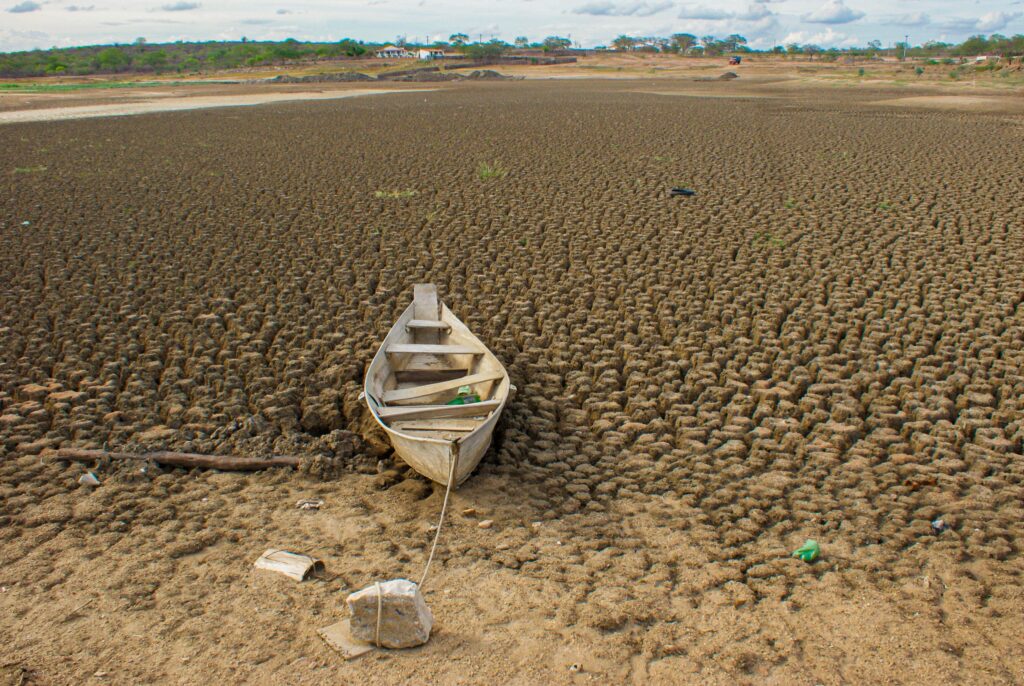Concern about climate change and its impacts is a growing issue in today’s society. The phenomenon of eco-anxiety, or stress caused by worries about the planet’s future, is becoming more common. But what exactly is ecological anxiety? How does it affect people, and what can be done to manage it?

What is Eco-Anxiety?
Eco-anxiety can be described as a persistent fear of environmental collapse or natural disasters caused by climate change. It primarily affects people who are deeply aware of the negative impacts of climate change on the environment and society.
This term has gained popularity in recent decades as the general public became more aware of scientific evidence about global warming, biodiversity loss, and the increasing frequency and intensity of natural disasters.
Causes of Eco-Anxiety
Eco-anxiety arises from a combination of factors, some of the most relevant include:
- Visible climate changes: Rising temperatures, deforestation, melting glaciers, and recurring natural disasters contribute to a sense of despair about the planet’s future.
- Constant information: Continuous exposure to alarming news about environmental crises through social media and other communication channels intensifies feelings of helplessness.
- Loss of biodiversity: The extinction of species and the degradation of ecosystems create a sense of irreparable loss, directly affecting the psychological well-being of many individuals.
- Concerns about the future: Uncertainty about the future of the planet, especially regarding the survival of future generations, is one of the main reasons for the increasing levels of anxiety.
Psychological Effects of Eco-Anxiety
Eco-anxiety affects people in various ways. Some of the most common manifestations include:

Sense of helplessness
Many individuals feel that their personal efforts to reduce their environmental impact are insufficient, leading to a deep sense of helplessness. The feeling that governments and corporations are not doing enough to mitigate climate change amplifies this frustration.
Chronic stress and insomnia
Constant fear about the future of the environment can result in chronic stress. Concerns about natural disasters, food security, and the quality of life for future generations can interfere with sleep, leading to insomnia.
Social isolation
Those experiencing eco-anxiety may often feel disconnected from friends and family who do not share the same level of concern about the climate. This can lead to social isolation, as it becomes difficult to find support and understanding within traditional social circles.
Feelings of guilt
Awareness of the environmental impact of daily activities, such as plastic use, meat consumption, or fossil fuel use, can make people feel guilty about their lifestyle. Even though these behaviors are common, the understanding that they contribute to environmental degradation heightens feelings of responsibility and guilt.

The Role of Social Media in Amplifying Eco-Anxiety
Social media plays a dual role when it comes to eco-anxiety. On the one hand, it is an important tool for raising awareness and mobilizing action on environmental issues. However, constant exposure to negative news, catastrophes, and environmental crises can amplify feelings of anxiety.
Excessive consumption of environmental news
Platforms like Twitter, Instagram, and Facebook are flooded with information about wildfires, floods, and other environmental disasters. While awareness is crucial, excessive consumption of this kind of news can lead to mental overload and despair.
Comparison with sustainable lifestyles
Comparisons with influencers and public figures who promote sustainable living can create feelings of inadequacy. Many people feel unable to make significant lifestyle changes, which aggravates eco-anxiety.
How to Cope with Eco-Anxiety
While eco-anxiety is a real and growing phenomenon, there are effective ways to manage its effects.

Local and global action
Engaging in local action can help reduce feelings of helplessness. Volunteering in environmental projects, planting trees, or adopting more sustainable living practices are ways to contribute positively to the environment.
At the same time, participating in global movements for political and environmental change can create a sense of purpose and community. Knowing that many people are fighting for the same goal can reduce isolation and increase optimism.
Limiting news consumption
It’s important to stay informed, but it’s also essential to know when to disconnect. Excessive consumption of alarming climate news can heighten anxiety levels. Setting daily limits on information intake can help reduce its negative impact.
Focus on solutions
Rather than concentrating only on problems, it’s important to focus on solutions. Technological innovations, such as renewable energy sources, the circular economy, and promising public policies are examples that show positive changes are happening.
The Importance of Mental Health
Acknowledging eco-anxiety as a legitimate concern is the first step in dealing with it. Consulting a therapist or psychologist can be helpful in developing coping strategies. Some approaches include cognitive behavioral therapy (CBT), which helps people restructure negative thought patterns, and mindfulness practices, which assist in stress management.
Conclusion
Eco-anxiety is a natural response to the current state of the environment and the uncertain future we face. However, it is possible to find ways to cope with this anxiety through conscious action, limiting exposure to alarming news, and seeking emotional support. By focusing on solutions and the actions within our control, we can face the future more balanced and positively.
Read More:
Understanding Eco-Anxiety – https://qr.ae/p2WKt4




Pingback: Climate Change: How to Maintain Health and Well-Being Amid a Global Crisis - VarietyWeb